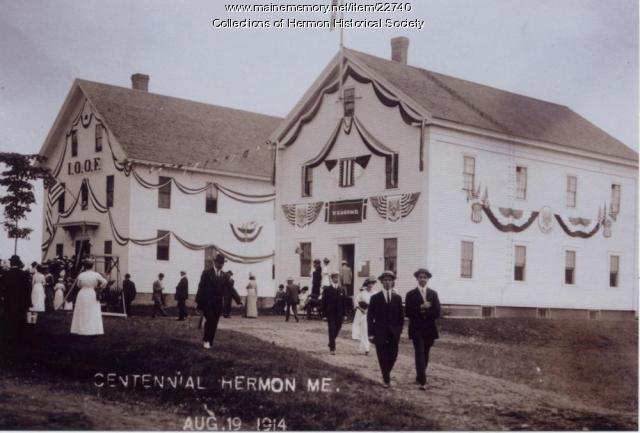Keywords: youth
- Historical Items (293)
- Tax Records (0)
- Architecture & Landscape (2)
- Online Exhibits (41)
- Site Pages (28)
- My Maine Stories (14)
- Lesson Plans (5)
Lesson Plans
Your results include these lesson plans. Your results include these lesson plans.
Lesson Plan
Portland History: "My Lost Youth" - Longfellow's Portland, Then and Now
Grade Level: 6-8, 9-12
Content Area: English Language Arts, Social Studies
Henry Wadsworth Longfellow loved his boyhood home of Portland, Maine. Born on Fore Street, the family moved to his maternal grandparents' home on Congress Street when Henry was eight months old. While he would go on to Bowdoin College and travel extensively abroad, ultimately living most of his adult years in Cambridge, Massachusetts, he never forgot his beloved Portland.
Years after his childhood, in 1855, he wrote "My Lost Youth" about his undiminished love for and memories of growing up in Portland. This exhibit, using the poem as its focus, will present the Portland of Longfellow's boyhood. In many cases the old photos will be followed by contemporary images of what that site looked like 2004.
Following the exhibit of 68 slides are five suggested lessons that can be adapted for any grade level, 3–12.
Lesson Plan
Longfellow's Ripple Effect: Journaling With the Poet - "My Lost Youth"
Grade Level: 6-8, 9-12, Postsecondary
Content Area: English Language Arts, Social Studies
This lesson is part of a series of six lesson plans that will give students the opportunity to become familiar with the works of Longfellow while reflecting upon how his works speak to their own experiences.
Lesson Plan
Building Community/Community Buildings
Grade Level: 6-8
Content Area: Social Studies
Where do people gather? What defines a community? What buildings allow people to congregate to celebrate, learn, debate, vote, and take part in all manner of community activities? Students will evaluate images and primary documents from throughout Maine’s history, and look at some of Maine’s earliest gathering spaces and organizations, and how many communities established themselves around certain types of buildings. Students will make connections between the community buildings of the past and the ways we express identity and create communities today.
Lesson Plan
Wabanaki Studies: Stewarding Natural Resources
Grade Level: 3-5
Content Area: Science & Engineering, Social Studies
This lesson plan will introduce elementary-grade students to the concepts and importance of Traditional Ecological Knowledge (TEK) and Indigenous Knowledge (IK), taught and understood through oral history to generations of Wabanaki people. Students will engage in discussions about how humans can be stewards of the local ecosystem, and how non-Native Maine citizens can listen to, learn from, and amplify the voices of Wabanaki neighbors to assist in the future of a sustainable environment. Students will learn about Wabanaki artists, teachers, and leaders from the past and present to help contextualize the concepts and ideas in this lesson, and learn about how Wabanaki youth are carrying tradition forward into the future.
Lesson Plan
Longfellow Studies: The Writer's Hour - "Footprints on the Sands of Time"
Grade Level: 3-5
Content Area: English Language Arts, Social Studies
These lessons will introduce the world-famous American writer and a selection of his work with a compelling historical fiction theme. Students take up the quest: Who was HWL and did his poetry leave footprints on the sands of time? They will "tour" his Cambridge home through young eyes, listen, and discuss poems from a writers viewpoint, and create their own poems inspired by Longfellow's works. The interdisciplinary approach utilizes critical thinking skills, living history, technology integration, maps, photos, books, and peer collaboration.
The mission is to get students keenly interested in what makes a great writer by using Longfellow as a historic role model. The lessons are designed for students at varying reading levels. Slow learners engage in living history with Alices fascinating search through the historic Craigie house, while gifted and talented students may dramatize the virtual tour as a monologue. Constant discovery and exciting presentations keep the magic in lessons. Remember that, "the youthful mind must be interested in order to be instructed." Students will build strong writing skills encouraging them to leave their own "footprints on the sands of time."






